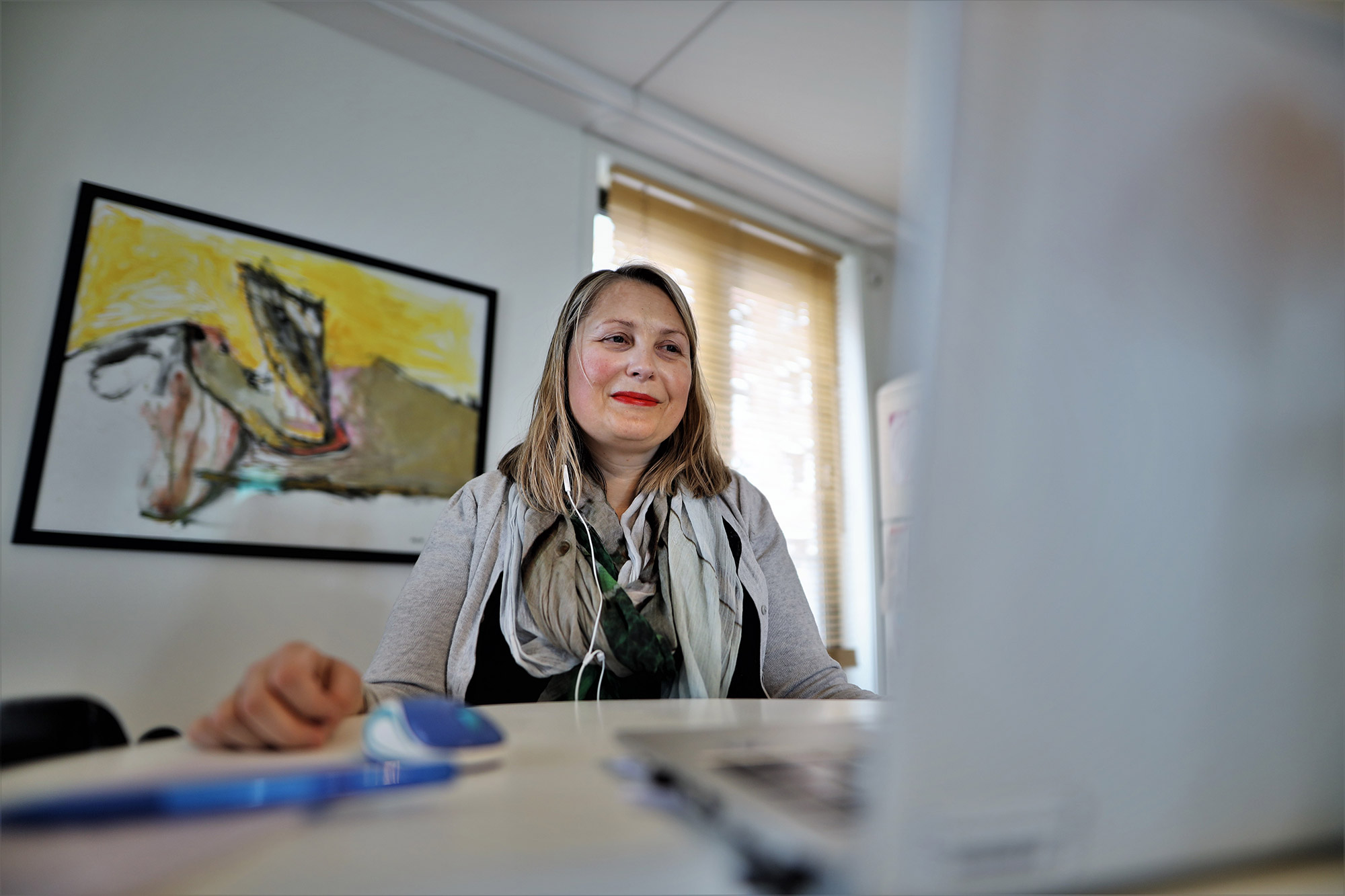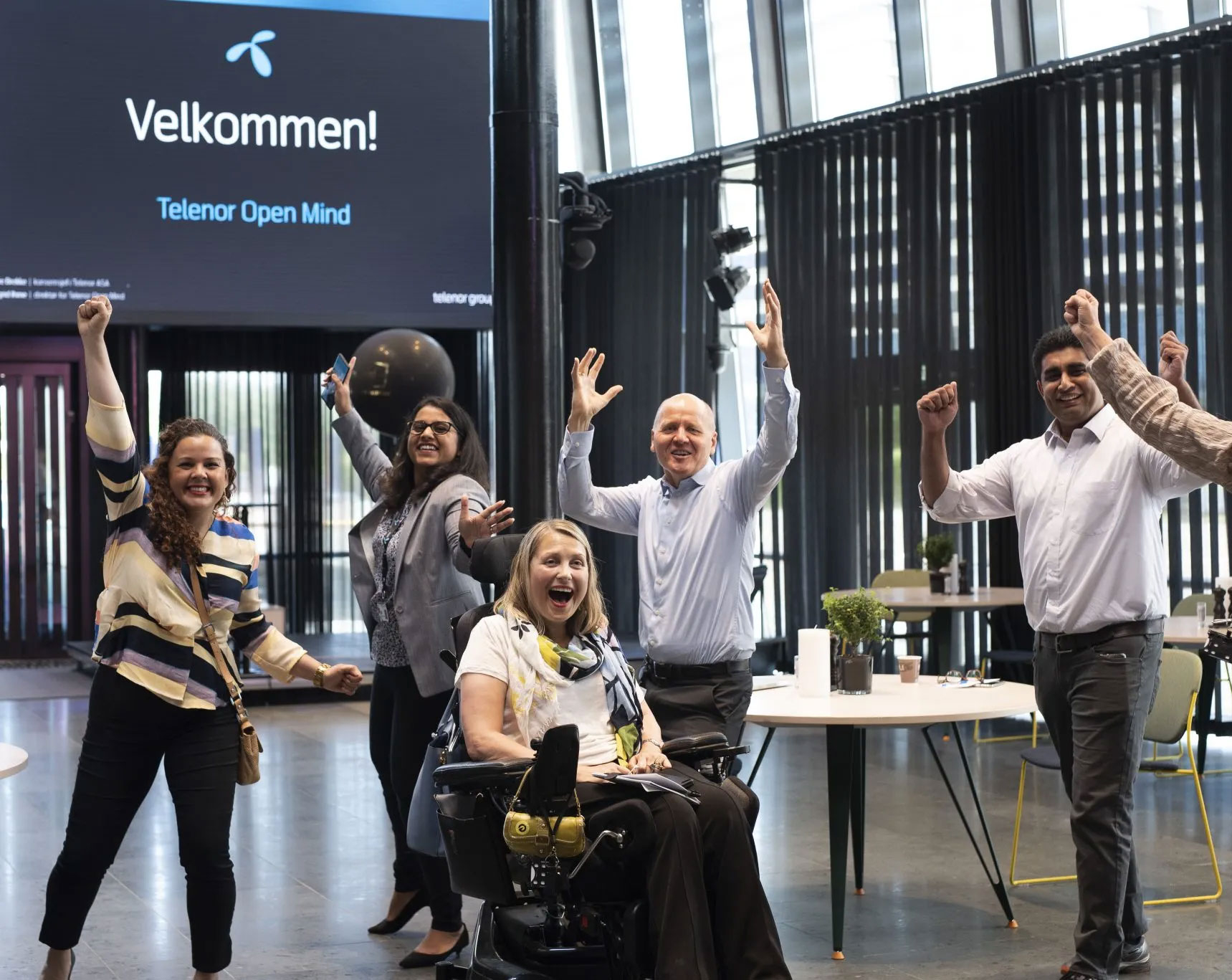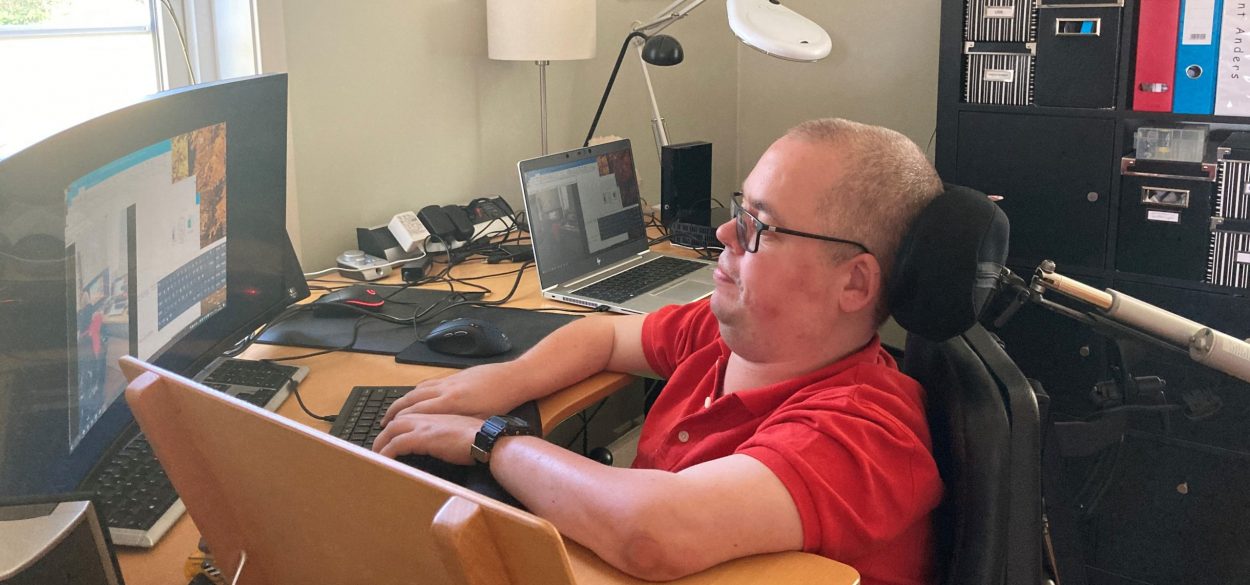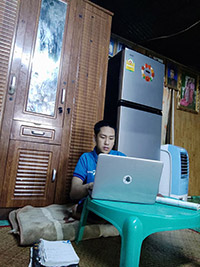
Could a more flexible workday mean a more diverse workplace?
Include
Enabling participation for all
Include means that Telenor is committed to equality, by enabling connectivity for all and driving greater societal inclusion through it.
The COVID-19 crisis may be remembered as the true dawn of the home office age, but could it also go down in history as the beginning of a more diverse and inclusive workplace?
Flexibility is the way forward at Telenor; a way of working that enables employees to find a better work-life balance, characterised by less commuting and more time spent on what matters most. That means family time, pastimes, and maybe an extra minute or two snoozing in bed each morning.
Amid all the leisure-linked excitement, ever more profound work-related possibilities are beginning to emerge.
“We now have a window of opportunity to reduce inequalities and increase inclusion,” says Ingrid Ihme, Director of Telenor’s Open Mind programme in Norway.

On a mission since 1996
It is fair to say that Ingrid knows more than a thing or two about the subject of diversity and inclusion. She has been at the helm of Telenor’s front-running job training programme Open Mind for over 20 years. She herself joined Telenor as an Open Mind participant in 1996.
“Our mission is to give people with physical disabilities or mental health challenges real-life work experience to increase their chances of getting employment as they, unfortunately, have a hard time accessing the workforce,” she explains.
Ihme has a neuromuscular disease and uses a wheelchair. These are details she hopes will mean increasingly little in a professional sense, as the worth of employees is defined differently in the flexible work-day of the future.
“Being surprised by the fact that I am a leader of an organisation is an attitude that should have expired a long time ago,” she explains.
“I’ve been a valuable resource for my employer for over two decades, and each year I see new Open Mind candidates with untapped potential and skills I know would benefit many companies. Now that we are working more remotely, I hope more leaders realise the insignificance of the chair their employees are using. Office chair or wheelchair, from the home office we’re all the same.”

Hit the clicks, not the road
The satisfaction derived from meaningful work is something Ihme can’t put a price on. However, she knows from experience that jobs that demand a physical presence at an office come at a cost.
“It may not sound very exhausting, but attending a meeting at an office often holds many physical and time consuming-challenges for a wheelchair user. Since we went into lockdown and started working from home, I’ve felt more energetic and I am able to spend more time on my actual work, which benefits both myself and my team,” she says.
Bernt Anders Schea Bakke, former Open Mind candidate and now coordinator of the programme, describes the sudden change of working habits as special, but exciting.
“Suddenly everyone was in the same situation, and everyone had to get better at communicating and sharing information through digital platforms. I think it has been a big positive, and I am glad we have embraced a more flexible way of work. If I need to spend six hours of work on writing or editing tasks, it is far more effective for me to attend a 45-minute meeting in the middle of the day remotely. In my condition, having a muscle disease and sitting in a wheelchair, there is a big difference between the meetings that are just three clicks away instead of half an hour’s drive,” he notes.

No substitute for social gatherings
All the way on the other side of the world, a voice from another Telenor’s Open Mind programme agrees.
Myo Min Htet, here at his home, is part of Telenor Myanmar Open Mind’s first-ever candidate pool.
 “As my job duties are online-based, it is in many ways beneficial for me to work from home. Here, I have my family to support me, and I save time and money by not having to commute to the office,” says Myo Min Htet.
“As my job duties are online-based, it is in many ways beneficial for me to work from home. Here, I have my family to support me, and I save time and money by not having to commute to the office,” says Myo Min Htet.
Currently working with the Sustainability team in Telenor Myanmar, Htet, who is born with a congenital physical defect, emphasises that freedom of choice is what makes him an avid supporter of the flexible way of work.
“I do prefer face-to-face communication over virtual meetings, but sometimes it is much more efficient and convenient to attend meetings and to perform my assignments from home. What I hope to see out of this whole COVID-19 situation and our new flexible workstyle is that we all get better at using video technologies to keep close to colleagues, family, and friends.”
Both Ihme and Bakke concur with Htet.
“To spend time physically with the people I love is what I cherish most in life, so I am very eager to return, not back to normal, but to the new normal,” says Ihme.
The power of necessity
As parts of the world tentatively emerge from the aftermath of the pandemic, it’s perhaps natural to look for some chinks of light in what has been an immensely dark period for millions globally. Ihme sees one such ray of hope.
“I would of course not call COVID-19 a blessing in disguise, because the pandemic has caused immense suffering and difficulties for many. However, there is no doubt that the circumstances have forced us to become better at working remotely and using digital tools. In a strange way, from behind our desktop cameras, I feel we all have become more like peers.”
That’s a feeling not granted to everyone, she says.
“And you only understand the true magnitude of it if you have ever felt like a burden. So, I think this will elevate many people – maybe for the first time – to feel like an equal member of the workplace, and thus a resource for the company and society as a whole.”